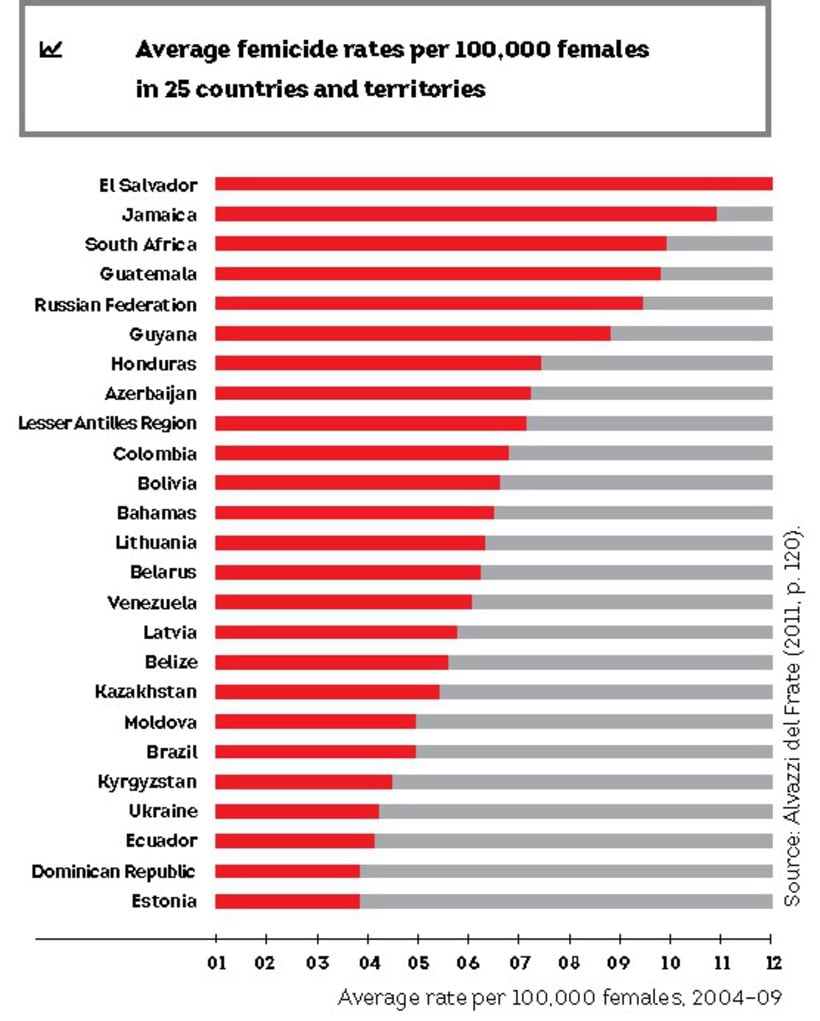Defending Women
Femicide, the murder of women and violence against them, is a problem that plagues many developing countries. Reducing the prevalence of this heinous crime would not just be beneficial for the people living within their borders, but would have economic upsides as well.
 In early March, Brazilian president Dilma Rousseff signed a new law that takes a much stricter stance on femicide. Murderers of women now face 12 to 30 years of imprisonment, compared to a maximum of only three years under previous legislation. The measure was taken in an attempt to combat a recent surge of violence against women; the president said that 15 females are killed each day in Brazil. The new law offers a broader definition of femicide, and now includes domestic violence, contempt, and discrimination against women. The measure should serve as a clear signal that the Brazilian state is ready to actively defend its female citizens.
In early March, Brazilian president Dilma Rousseff signed a new law that takes a much stricter stance on femicide. Murderers of women now face 12 to 30 years of imprisonment, compared to a maximum of only three years under previous legislation. The measure was taken in an attempt to combat a recent surge of violence against women; the president said that 15 females are killed each day in Brazil. The new law offers a broader definition of femicide, and now includes domestic violence, contempt, and discrimination against women. The measure should serve as a clear signal that the Brazilian state is ready to actively defend its female citizens.
Brazil is not the only Latin American country that has introduced harsher punishments for femicide. Similar regulations have been adopted in Guatemala, Nicaragua, and El Salvador – the latter of which holds the world’s highest femicide rate. Twelve out of every 100,000 Salvadorian females are killed violently.
It is not a coincidence that this problem ravages Latin America. Experts believe it has to do with an extremely high level of crime and corruption in the region, boosted by recent civil wars and the omnipotence of drug gangs. The spread of violence against women can also be accounted for by the prevalence of ‘macho’ culture, as well as by local authorities’ unwillingness or inability to combat this crime. In Guatemala in recent years, police investigated less than 2% of domestic violence cases – and that just takes into account the crimes women were brave enough to report. The vast majority of such cases went unreported.
These amendments to the penal code will not eradicate global violence against women overnight. This is an acute problem that extends far beyond Latin America. However, the adoption of these laws is a sign that governments are no longer willing to turn a blind eye to the issue, and that progress is being made to solve femicide and discrimination against women.
This is a vital step for economic development in the world’s poorest countries, and it may also help to fight hunger. Women produce about one-half of Asia’s food supply, and in some African countries women constitute more than 80% of the rural workforce. Estimates from the UN’s Food and Agriculture Organization show that providing women with equal access to agricultural resources could boost the world’s food production by 20-30%, and could potentially reduce the number of starving people by 12-17%. This is yet another convincing argument in defense of women.










